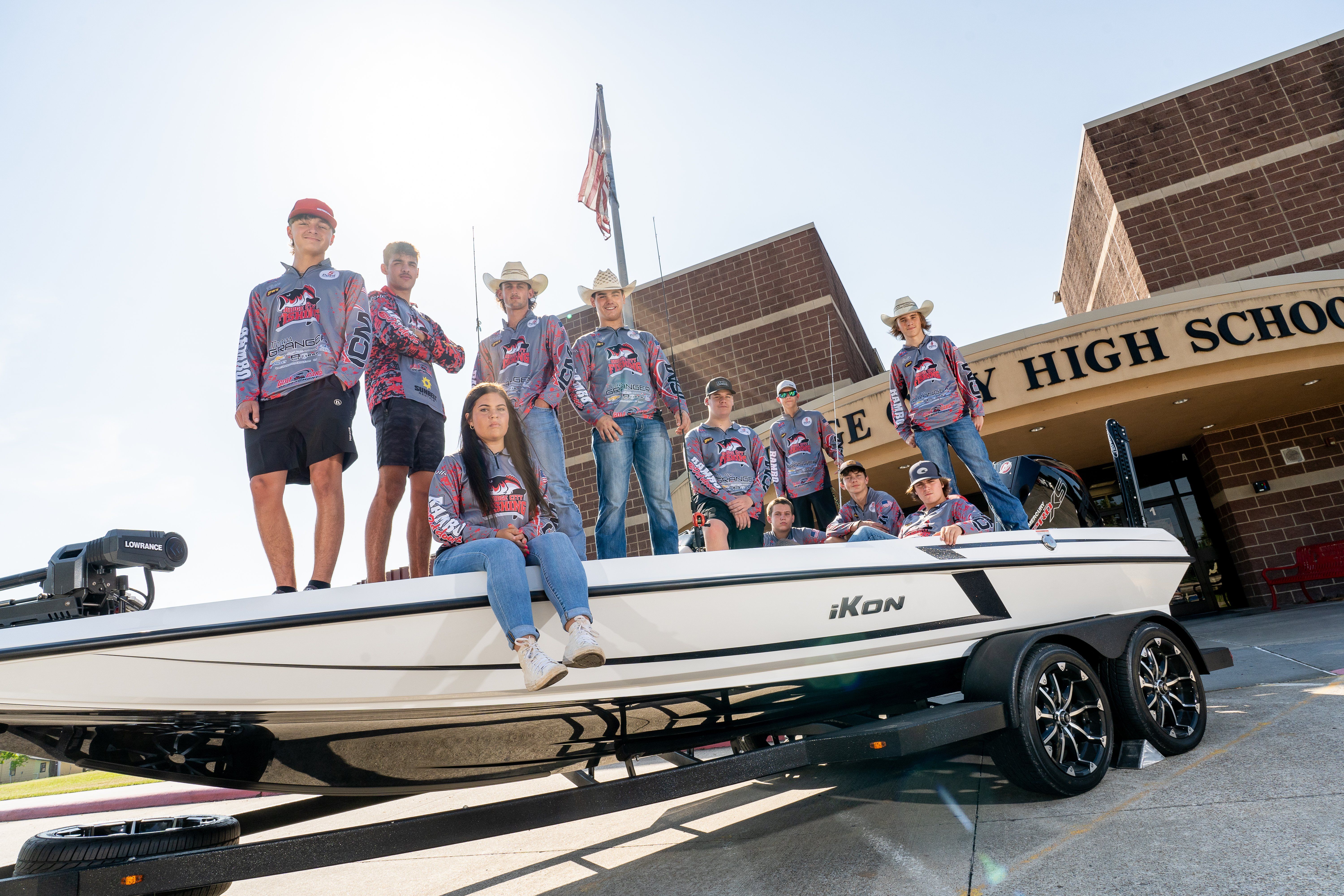CASTING A LINE: Competitive fishing emerges as a top sport at Bridge City
One of the fastest-growing sports at Bridge City High isn’t on the field or court.
It’s on the water.
Dating back to 2013, BCHS has gradually been developing a club dedicated to the common passion of competitive fishing.
Along with several other schools that make up the Southeast Texas High School Fishing Association, this program consists of numerous tournaments in which teams compete against each other with the opportunity to win scholarships.
One might wonder about the full scope of its popularity.
“Our team has been growing,” said one of the program’s directors, Melissa Cox. “We started with just a few. We only have 30 seniors right now, but the junior class is huge, and the underclassmen team continues to grow as well. We’re trying to expand our club, and they’ve been really fun to work with.
“Around here, we fish a lot. But it’s not like football, where something brings people together. So, watching all these kids bond and compete over their common love for fishing is really special to see.”
Bradley C. Collier (VYPE)
▲
Bradley C. Collier (VYPE)
▲
Bradley C. Collier (VYPE)
▲
Bradley C. Collier (VYPE)
▲
Bradley C. Collier (VYPE)
▲
Inspired by the BassMaster Elite trail, this phenomenon has spread to the collegiate and high school level, which brings the Bridge City team to where it is today.
The Cardinals represent exceptionally well on the water. The group averaging at least three Top 30 finishers in every tournament, and had success to the tune of earning up to $15,000 in scholarships in just one season.
Fishing may be a solitary activity to some, but that doesn’t mean the students can’t learn something along the way.
“The kids learn teamwork through the tournament fishing program, and they learn how to be accountable for themselves,” said Cox. “They are working in groups and they have a partner throughout the process, but they understand how to be individually responsible as a result.”
So what does a tournament day look like for the students involved?
“Usually, the kids are blasting off pretty early,” Cox said. “They can start putting their lines in the water around 7 a.m. and they tend to grind it out all day until around 3 p.m. Since most of our tournaments start around January, they can sometimes be out in 30-degree weather with icicles hanging off their boats and poles.
“That, paired with the fact that they tend to bring their own equipment and drive to the location, shows just how committed these kids are to this sport.”
Sounds difficult, yet inviting. It’s not hard to see what reeled these competitors in.
